For decades, especially since the 1980s, the great schism in the comprehensive vision of human rights memorialized in the Universal Declaration of Human Rights, has split the nations of the globe and especially their elites. On one side has been the liberal democratic camp with its emphasis on civil and political rights elaborated in the International Covenant for Civil and Political Rights. This camp has consistently taken the position that civil and political rights are gateway rights that make it possible to elaborate and enjoy fully economic, social and cultural rights. Put differently, they have grounded their political ideology, as expressed in human rights terms, on a foundation of individual rights and autonomy only form out of which can collective rights--economic, social, and cultural--be realized. And at the heart of civil and political rights are the fundamental principles of liberal democracy and markets based economic ordering.
On the other side has been the Marxist-Leninist camp, joined by elements of developing states. For this camp, economic, social, and cultural rights, elaborated in the International Covenant of Economic, Social and Cultural Rights, are the fundamental starting point for any elaboration of rights. This camp has taken the position that economic, social, and cultural rights are the fundamental doorways to the enjoyment of civil and political rights. They have consistently taken the position that without the assurance of collective rights at the foundation of political ordering, it is impossible to develop, much less protect, authentic expressions of political and civil rights. Put differently, the foundations of human rights are collective and expressed in terms of collective welfare, from out of which individual dignity and autonomy can be understood and protected within the collective. And at the heart of economic, social, and cultural rights, are the fundamental principles of Marxist-Leninist theory and development collectivism that subordinates markets to institutional representatives of authentic human collectives.
Over the last several decades, however, elites on both camps have sometimes strayed from the core orthodoxies of the ideological systems through which they have obtained and retain their positions and authority. In some jurisdictions the result has been rectification and discipline. In others, that straying has produced a substantial space for debate. The difference in emphasis has dramatic effect on the organization of human collectives and the systems for providing meaning to human interaction. They serve as well as two quite distinct baselines for judging and for valuing human activity. Two very different ways of imposing meaning on the world (at least from a human centered perspective) produce profoundly difficult question of meaning making and its result on the authenticity and legitimacy of human action. More importantly, of course, that chasm ought to lead to confrontation with the larger issue--ought the human to be at the center of human rights (whether in individual or collective form) or should human rights be embedded within the larger eco-systems that make human life possible?
It is in this environment that it is possible to better appreciate the announcement by Juan Pablo Bohoslavsky and Francisco Cantamutto: Announcing Publication of 18th issue of Derechos en Acción (Rights in Action Journal -ReDeA), devoted to study the links between the IMF and human rights. The announcement, which follows below, notes quite particularly:
Existe una noción hegemónica de los derechos humanos que propone una visión de los mismos basada en la supuesta defensa de los derechos civiles y políticos (que se focalizan en lo individual y asumen una desconfianza frente al Estado) en detrimento de los derechos económicos y sociales, en los cuales lo relacional es esencial y el Estado asume obligaciones positivas. Esta Edición Especial desafía esta interpretación minimalista y derrotista de los derechos humanos, resaltando su potencial transformador en los ámbitos de la deuda pública y las políticas sociales, cambiarias y monetarias, tributarias, laborales, de género y ambientales.
There is a hegemonic approach that proposes a notion of human rights restricted to an allegedly defense of civil and political rights -which focus on the individuals and assume a distrust of the State- to the detriment of economic and social rights -for which the relational aspect is essential and the State assumes positive obligations. This Special Edition challenges this minimalist and defeatist interpretation of human rights, highlighting their transformative potential in the areas of public debt, social policies, exchange rate and monetary policies, tax revenue, labor, gender and environmental policies.
Those notions provide the conceptual framework in which the issue's articles are embedded. They make for very good reading. For those drawn to these ideas they tend to reinforce insights that support that move in the liberal democratic camp from regimes of individual to collective rights, and from autonomous private sector ordering to private sector administrative regulation of increasing aspects of economic, social, and cultural life. You be the judge. Of particular interest might be the volume's Prologue written by Martti Koskenniemi (University of Helsinki).
The entire issue may be accessed HERE: Número completo PDF .
The table of contents with links to individual articles follow below.
(See in English below)
Estimadxs colegas,
Con gran entusiasmo queremos compartirles la publicación del número 18 de Revista Derechos en Acción (ReDeA), dedicado especialmente a analizar los vínculos entre el accionar del FMI y los derechos humanos. Está disponible libre y gratuito en este enlace.
Con prólogo de Martti Koskenniemi, se reúnen aportes de 48 autora/es y entrevistada/os provenientes del derecho, la economía, la sociología, las relaciones internacionales y el cine; de la academia, instituciones internacionales, la administración pública, la sociedad civil y el arte; de América Latina, Asia, Estados Unidos y Europa.
El número se publica mientras el gobierno argentino negocia con el FMI un nuevo acuerdo que reemplace al firmado en 2018, actualmente discutido a nivel político y judicial. Al mismo tiempo, el mundo entero enfrenta una situación delicada ante los altos niveles de endeudamiento, sobre todo frente a instituciones financieras internacionales. Esto tensiona las presiones de los acreedores con las necesidades sanitarias y económicas de los Estados deudores vinculadas a la crisis pandémica.
Aunque el FMI es solo una parte de esta crisis, su rol es fundamental. El FMI, que aún se autopercibe por encima de los derechos humanos, ha sido un vehículo institucional central de la reconfiguración socio-económica que conocemos como neoliberalismo. Sus créditos y condicionalidades regularmente se han traducido en violaciones de los derechos humanos de las poblaciones de los Estados deudores, según han documentado ampliamente las Naciones Unidas, experta/os y la sociedad civil.
Existe una noción hegemónica de los derechos humanos que propone una visión de los mismos basada en la supuesta defensa de los derechos civiles y políticos (que se focalizan en lo individual y asumen una desconfianza frente al Estado) en detrimento de los derechos económicos y sociales, en los cuales lo relacional es esencial y el Estado asume obligaciones positivas. Esta Edición Especial desafía esta interpretación minimalista y derrotista de los derechos humanos, resaltando su potencial transformador en los ámbitos de la deuda pública y las políticas sociales, cambiarias y monetarias, tributarias, laborales, de género y ambientales.
Las dos principales tesis que atraviesan el contenido de esta obra son que el FMI debe respetar los derechos humanos y que éstos ofrecen una guía concreta y específica para limitar y modelar las políticas del FMI, incluso en áreas técnicas que el FMI ha resguardado para sí en los últimos 76 años. Los 37 textos que componen la Edición Especial ofrecen argumentos y pruebas para sostener estas tesis, de cara a un escenario plagado de dificultades para encontrar la salida a la crisis actual. El FMI puede contribuir a buscar soluciones en línea con el respeto de los derechos humanos, o agravar la crisis de deuda a una nueva escala humanitaria.
Esta edición contó con el apoyo de la oficina Buenos Aires de la Fundación Friedrich Ebert (FES) y la Asociación Civil por la Igualdad y la Justicia (ACIJ).
Agradecemos la difusión.
Saludos cordiales,
Juan Pablo Bohoslavsky y Francisco Cantamutto
Editores
---
Dear colleagues,
It is with great enthusiasm that we would like to share with you the publication of the 18th issue of Derechos en Acción (Rights in Action Journal -ReDeA), devoted to study the links between the IMF and human rights. It is available free of charge following this link.
With a foreword by Martti Koskenniemi, it brings together contributions from 48 authors and interviewees from different disciplines including law, economics, sociology, international relations and filmmaking; from the academia, international institutions, public administration, civil society and arts; from Latin America, Asia, the United States and Europe.
The issue is published as the Argentine government negotiates with the IMF a new agreement to replace the one signed in 2018, currently questioned both politically and legally. At the same time, the whole world is facing a delicate situation in the face of high levels of indebtedness, especially towards international financial institutions. This puts the pressure from creditors in tension with public health and economic needs linked to the pandemic crisis in debtor countries.
Although the IMF is only part of this crisis, its role is fundamental. The IMF, which still perceives itself as above human rights, has been a central institutional vehicle for the socio-economic reconfiguration known as neoliberalism. Its loans and conditionalities have regularly resulted in violations of the human rights of the populations of debtor states, as widely documented by the United Nations, experts and civil society.
There is a hegemonic approach that proposes a notion of human rights restricted to an allegedly defense of civil and political rights -which focus on the individuals and assume a distrust of the State- to the detriment of economic and social rights -for which the relational aspect is essential and the State assumes positive obligations. This Special Edition challenges this minimalist and defeatist interpretation of human rights, highlighting their transformative potential in the areas of public debt, social policies, exchange rate and monetary policies, tax revenue, labor, gender and environmental policies.
The two main theses that run through the contents of this Special Edition are that the IMF must respect human rights and that human rights offer a concrete and specific guide to limit and shape IMF policies, even in technical areas that the IMF has kept for itself for the past 76 years. The 37 texts that make up the Special Edition offer arguments and evidence to support these theses, in the face of a scenario plagued by difficulties in finding a way out of the current crisis. The IMF can contribute to finding solutions while respecting human rights, or it can aggravate the debt crisis on a new humanitarian scale.
This edition was supported by the Argentinean office of the Friedrich Ebert Foundation (FES) and the Civil Association for Equality and Justice (ACIJ).
We appreciate the dissemination.
Best regards,
Juan Pablo Bohoslavsky and Francisco Cantamutto
Editors
_____________________
Presentación de Director ReDeA
Prólogo
Introducción
Artículos Académicos
Documentos Oficiales
Documento de Trabajo
Entrevistas


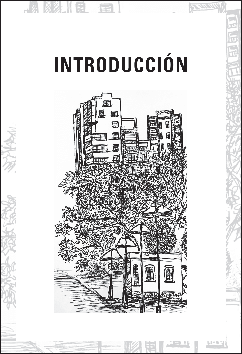
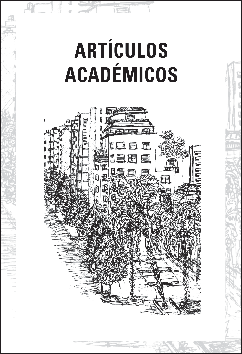
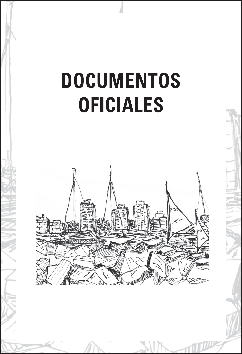
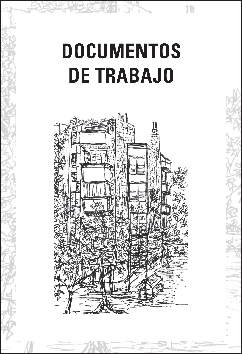

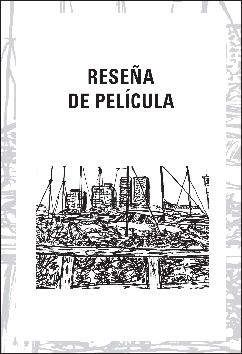
No comments:
Post a Comment